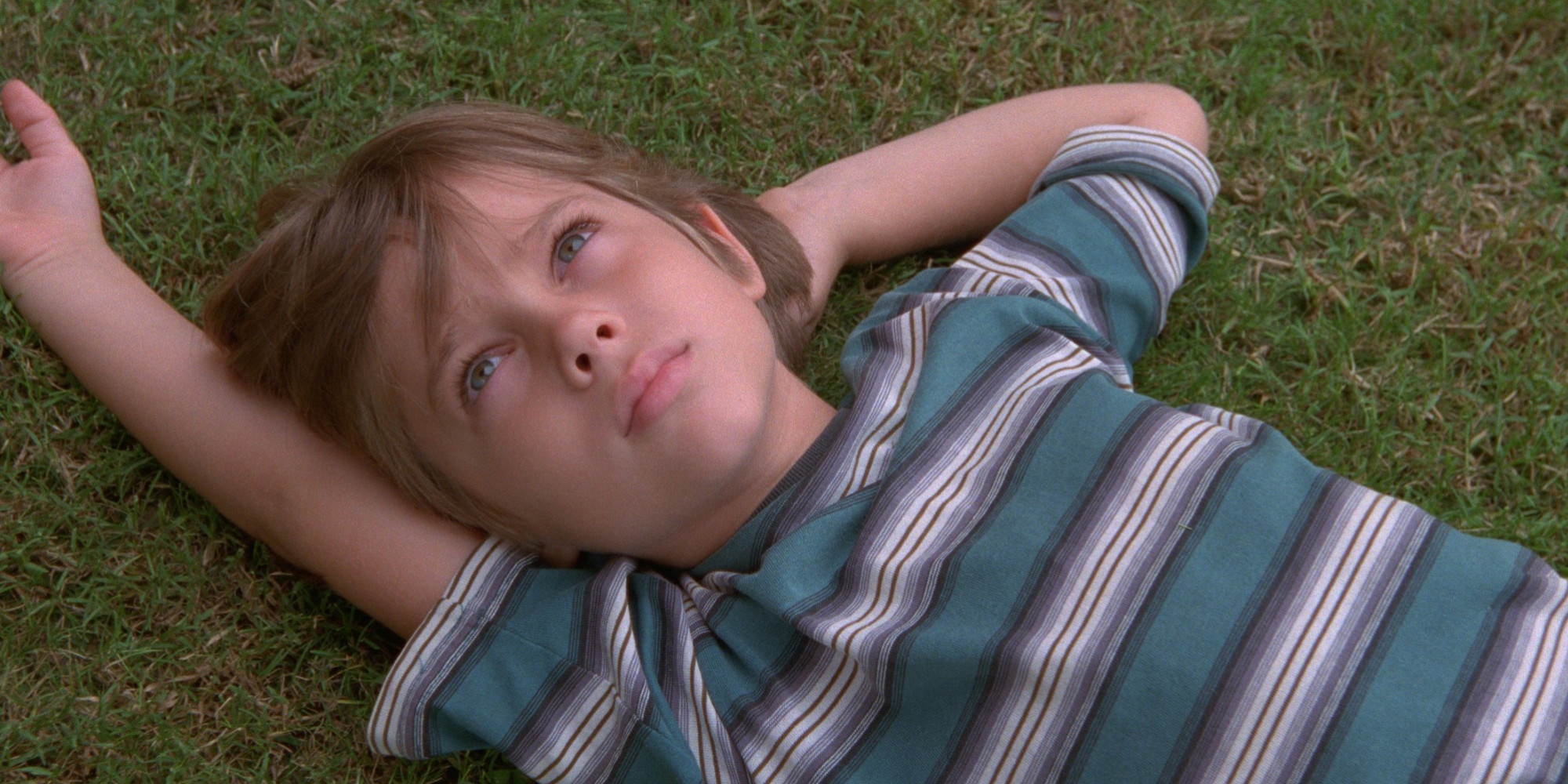

I had two initial thoughts during the closing credits of Richard Linklater’s 2014 film, “Boyhood.” First, I reveled in the originality of the film, both in its lengthy 12-year production and in its superb execution. Secondly, I found myself disappointed with Mason, the protagonist of the film, who ends up as an annoying maladjusted hipster teenager by the end of the film. After reading glowing reviews for “Boyhood” prior to seeing it myself, I did not want to write the typical “best film of the year!” kind of review. So while watching the film, I found myself searching for something, anything negative that I could snatch ahold of and say “aha! Metacritic, you’re wrong! It can’t get a 100!”
Back in 2002, Richard Linklater hired seven-year-old Ellar Coltrane to play Mason Evans, Jr. Over the course of 12 years, Linklater filmed Coltrane, capturing both the character and the actor’s growth and development between the ages of seven and 18. This lengthy production choice allowed Linklater the opportunity to craft a story based on Coltrane’s personal struggles between his adolescent and teen years. Mason begins the film as a very introspective and impressionable boy who particularly loves Star Wars and science. However, as the film progresses, Mason becomes negatively affected by several defining experiences in his life. From the absence of his father, played by Ethan Hawke, to the perpetual conflict between his mother, played by Patricia Arquette, and his multiple stepfathers, Mason becomes hardened and slightly cynical throughout his teen years. This becomes especially significant by film’s end as Mason begins his freshman year at Sul Ross State University, a point in his life at which he is beginning to think about what he wants to do and, more importantly, who he wants to be.
Before I go any further, let me clarify one of my initial thoughts. Throughout the film, I was not always rooting for Mason, but that is exactly what makes “Boyhood” such a unique film. As a character, Mason seems pretty self-absorbed and naïve. I would even go as far as saying that Mason comes off as pessimistic and overly confident. Yet, after listing Mason’s negative characteristics, I realized something very crucial: this guy is only 18-years old! What typical 18-year old doesn’t act the way Mason does? I was definitely no different.
As filmgoers, we tend to anticipate characters, specifically protagonists, to not only reflect reality, but also to present a better version of ourselves. Despite this prevailing expectation, “Boyhood” gives us a cast of characters that is no kinder, stronger or smarter than ourselves, which works to provide a mirror of our own flaws and shortcomings. Essentially, “Boyhood” returns us to our younger years, allowing us to recall the events that shaped our childhood. Whether it was a time when we screamed at our parents over something insignificant or when we were falling love for the first time, “Boyhood” successfully provides a palpable sense of nostalgia for viewers of all ages. Yet, “Boyhood” also represents a tribute to Generation Y. With notes of Coldplay’s “Yellow” and Soulja Boy playing in the background, as well as other references to the popular culture of this generation, the audience really gets a sense for what it was like growing up in the early 21st century.
The mundane scenes of Mason hiking with his dad, his mom telling him to wash the dishes, fighting in the car with his sister, Sam (Lorelei Linklater), come together to create a realistic portrait of childhood life. There are no car crashes, no hospital scenes, and no kissing in the rain, the tired and pervasive clichés of Hollywood films. With “Boyhood,” Linklater makes a huge statement by portraying his narrative with simple, yet powerful snapshots of Mason’s life. We all want to know the fate of the individual characters, yet “Boyhood” tactfully restricts our view. As the film progresses and the years pass, the characters melt away, never to be seen again. Mason, as well as his childhood friends and peers, grow up throughout “Boyhood” and, because we experience the events that cause this growth, the audience grows up as well. “Boyhood” is showing at Amherst Cinema this week.